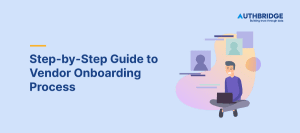HR technology has transformed not just the scope of human resources in the modern world but has changed the way the entire industry works. Well-known software companies, along with specialised HR technology Companies are supplying large organisations with new technology that facilitates all HR functions like background screening, workforce analytics, talent acquisition, and so on, paving the way for a new age of HR technology. In fact, HR technology is so huge that a study by CB Insights, a reputed venture capital database reported that investors all over the world invested over $2 billion in 2016 in HR technology and related platforms alone.
This is a clear indication of just how popular HR technology is across businesses in various industries. If your organisation wishes to keep up with the trend and adopt this new-age technology of human resources, like organisations all over the world do, there are few things you have to understand. First, what exactly does HR technology mean? What does it entail? And secondly, if you wish to buy HR technology, what are the key considerations you have to keep in mind?
What is HR technology?
In simple words, HR technology refers to various types of software, as well as hardware components that an organisation uses for facilitating and automating all kinds of human resource functions and activities. It is technology that enables tracking, managing, paying, understanding, informing, finding, remembering and delivering all kinds of benefits to every single employee within an organisation.
HR technology includes every tool that is required to carry out basic HR functions, including background screening, leadership due diligence, time and attendance, talent acquisition and management, benefits administration, employee payroll, employee communications, performance management, data and analytics (D&A), and workforce analytics.
This means that the more employees an organization has, the more complex the HR technology will be. However, with automation, cloud technology, and AI, it makes such processes more efficient and effective, promoting productivity and organizational efficacy. It’s not just huge corporates that have decided to jump on the bandwagon and automate their human resource activities and functions. Even local organizations that have only a small and average number of employees are starting to digitize their business. For such purposes, these small companies usually turn to cloud-based vendors who outsource HR technology Solutions.
Key considerations before buying any HR technology
If your organization is considering investing in HR technology, there are certain things to keep in mind so that you can make the absolute best of your investment. Regardless of whether you want HR technology for performance management, employee payroll and benefits or background screening, make sure you consider the following:
- Will it be profitable in the long run?
First of all, you have to consider if the new HR technology you wish to bring in will actually profit your organization in the long run. This may be in terms of monetary profits, brand reputation or increasing employee satisfaction.
- Will it actually improve productivity and efficiency?
Secondly, will this new HR technology really improve overall productivity and efficiency? If your human resource functions can be handled pretty well by your current HR system, then maybe it’s wise to not blindly follow trends.
- Is the entire organization welcoming of this new HR technology?
Introducing such a huge change, especially one that automates and digitizes, is often met with hesitation and disregard from employees. After all, their job is at risk when management introduces such changes. Make sure you navigate these risks carefully and with due consideration.
- Will the new technology bring about any negative side effects?
You have to think of all the possible negative outcomes should you adopt new HR technology. For example, your company data and employee data might be at risk if the underlying technology is not secure enough.
Also Read:- Buying HR Technology? Here’s What You Should Evaluate First!






